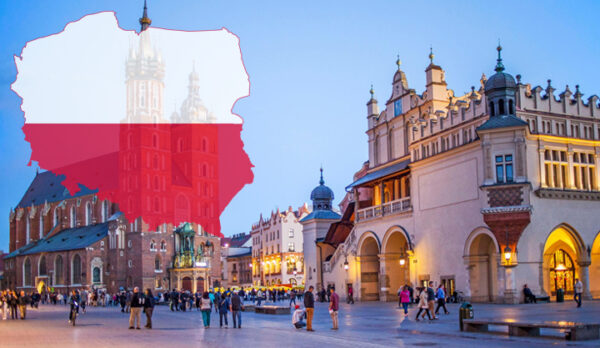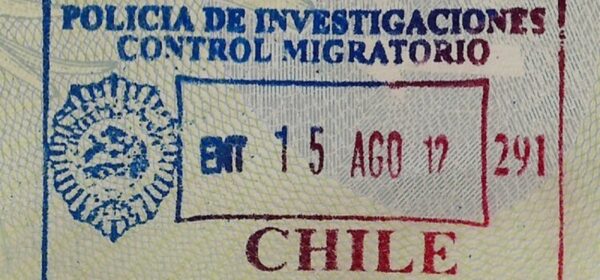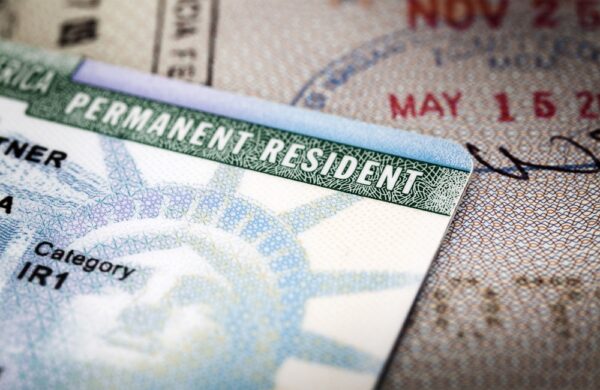Poland, often known as the Republic of Poland, is an amazing country in Central Europe. It is regarded as having a high-income economy with plenty of openings for foreign workers, which is why Poland immigration is quite popular among foreign citizens.
The country welcomes thousands of visitors to see its rich historical background, diverse landscapes, and vibrant cultural traditions. Here, we'll explore the immigration process, including the visa types, application process, requirements, and benefits for those looking to make Poland their new home.
Benefits of Moving to Poland
Here are the benefits of Polish immigration:
1. Tech-Friendly Country
Cashless payment systems are widely available throughout Polish communities! Even whether purchasing a kebab at a small country grocery store or at a Polish neighborhood market. This also applies to its neighboring countries.
No minimum amount is required for no-contact payments when using your smartwatch or mobile phone, which is quite practical. In Poland, e-commerce is so popular that you can get practically everything online, including food and everyday home goods.
The most significant thing is that you won't have to wait for a delivery because your box will be waiting for you in a parcel locker close to your house, and you'll have 48 hours to get it. Thanks to the widespread use of InPost, one of the most popular delivery services, you may be sure there is a locker in your neighborhood. That's fantastic!
2. Polish Food
Undoubtedly, Poland is a culinary paradise. Polish food is more than just bigos and fried pig chops daily.
Polish cuisine is minimally processed, and obtaining locally grown goods is simple.
It's easy to locate a simple Polish restaurant because they still love to cook traditional cuisine at home. And bread is just one more wonderful thing. Many bakeries offer a typical, classic sourdough loaf. Do away with the spongy loaves in plastic bags. Poland produces delicious bread!
3. Accommodation
Even within Warsaw, the capital, lodging is reasonably priced compared to other European nations. Polish immigrants won't have to look far to locate lodging in Polish cities—from compact apartments to detached homes—that meets their needs in terms of style, cost, and commuting convenience.
4. Lifestyle and Polish Culture
Polish cities host a wide range of cultural events, such as film and music festivals, food events, conferences, concerts, and art exhibitions. No surprise, it’s an amazing destination country for tourists. Polish citizens have a great cultural identity.
Many galleries and museums are also present. Summertime offers many easily accessible outdoor activities, like windsurfing, kayaking, mountain trekking, camping, beach visits, and bike riding. No wonder it’s among the most popular immigrant destinations.
5. High Quality of Life
There is a pretty good balance between monthly expenses and potential quality of life. Although Poland's cost of living is still lower than that of Western European nations, its degree of security, economic status, and general standard of living are occasionally noticeably greater. It appears from speaking with foreign residents of Poland that most of them have been quite pleased by the country.
6. Good Transportation
It is now a wonderful pleasure to go around Poland. Drivers can access an excellent network of expressways and highways, the majority of which are free, and the train network is expanding and modernizing yearly.
Poland's railway and bus stations have all received significant restorations recently; just a small number remain to be renovated. Private security agencies monitor the stations, which are often free of homeless people and immaculate. Even tiny train stations that have undergone renovations are guarded around the clock to prevent damage and theft.

Poland Entry Requirements
Foreign nationals may need a visa to enter Poland if they are not exempt from visa requirements or if a visa and residency permit is issued by another European Schengen nation. You can travel to Poland without your Polish visa if:
- A visa-free agreement exists between Schengen and your home country. Among them are nationals of the United States, Georgia, Canada, Australia, Japan, Zealand, South Korea, Thailand, and Tunisia.
- Your country is a member of the EU/EEA or a part of the Schengen area.
Citizens of over 60 countries do not need a Polish visa to enter Poland. However, individuals are only permitted entry if they have a valid travel document (passport, for example). Nevertheless, during any 180-day period (6-month period), the total amount of time spent on the soil of one or more Schengen nations cannot exceed 90 days.
Poland Visa Types
Here are the different types of visas available for foreign citizens in Poland:
1. Schengen Visas (Type C)
You must obtain a Polish tourist visa if your intended stay in Poland is shorter than ninety days. This visa is ideal if you wish to travel to Poland for business, pleasure, or even medical care. It is known as a Schengen visa because it permits the holder to travel to all other Schengen nations throughout the validity term.
2. Transit Visa (Type A)
When a person has a Polish airport transit visa, they can enter an airport's international transit area to change flights. It is intended for passengers with a connecting flight in Poland but heading to a third nation.
If a person stays inside the international transit region, they may not require a transit visa.
3. Work Visa
If you intend to relocate to Poland for work, this visa is for you. It’s one of the best visas if you’re considering Poland immigration since the labor market is quite good. You need a visa to enter Poland as a non-EU citizen and begin work.
You must apply for a Polish work visa if a Polish employer employs you or has an offer of employment. Nevertheless, before you apply for a work visa, your employer must apply for and obtain a work permit on your behalf. Poland grants several categories of work visas from which you can choose:
- Work Permit A
- Work Permit B
- Work Permit C
- Work Permit D
- Work Permit S
This type of visa allows you to stay in Poland for the term of your contract, which can be extended by renewing it with your employer. If your work permit is valid for at least two years, you may bring your family to Poland.
4. Student Visa
If you want to study in Poland but are not from an EU or EEA nation, you need to apply for a Polish student visa. If you plan to study for over a year, you must apply for a student housing permit.
5. Family Visa
A Polish family visa is necessary if you wish to join your parents or spouse who currently resides in Poland. You can work in Poland for the duration of the two-year family visa. The recipients of this kind of visa are:
- Children under the age of 18
- Spouses
- Parents
Poland Visa Requirements
Here are the general documents you'll need if you're traveling to Poland:
- Poland visa application form
- Passport sized photos
- Proof of travel health insurance
- Cover letter
- Proof of accommodation
- Proof of sufficient funds
- Flight itinerary
- Proof of payment for visa fee
Additional requirements
Depending on the kind of visa you're applying for, you might need the following additional documents:
- Employment letter
- Proof of visa payment
- CV
- Original and copied version of work permit
- Police clearance certificate
- University acceptance letter
- Medical travel insurance
- Invitation letter
- Scholarship document (if applicable )
- Proof of English language proficiency
- Proof of relationship status
How to Apply for a Polish Visa
Here are the steps you need to follow to apply for your Poland visa.
1. Make arrangements with the closest Polish consulate or embassy at your country of origin. To submit your visa application, ensure to make an appointment with the embassy or consulate.
2. Prepare your documents. The embassy or consulate will send you a list of the necessary documents for your visa.
3. Submit your visa application. On the day of your appointment, you might also have to attend a visa interview.
4. Await the outcome. Applying well before your trip is important, as processing your visa application may take several weeks. Once you get your visa, your Poland immigration begins!
Where to Apply for Your Poland Visa
During your Poland immigration journey, you need to know where to apply for your visa. Poland visa application processing takes place at Polish embassies and consulates (as well as the application centers connected with them) worldwide (application destination or country of origin). Although Poland offers an online application process, candidates must still meet the conditions for a Poland visa in person at the location of the application.
Applying for a Poland visa while outside of the country must be done through your local Poland embassy, consulate, or visa application office. If Poland has no mission in your nation, you will probably apply for a visa to Poland via the embassy or consulate of another country that represents Poland's interests overseas.
Poland Visa Processing Time
Poland visa applications usually take ten to fourteen days to get processed. After this period, the Polish authorities or consulate will respond to you. Sometimes, a visa application may take longer to process, and you may have to wait up to 45 days to hear back.
Poland Visa Fees
- Short stay visa/ Schengen visas cost €90 ($99)
- Long stay visas(family,work,and study visas) cost €80 ($88)
Conclusion
Poland immigration offers a unique blend of cultural heritage, economic growth, and welcoming communities. With a straightforward visa process, Poland is an attractive destination for individuals, families, and entrepreneurs. It provides a high quality of life, a rich history, and a promising future, making it an ideal place to call home.
















